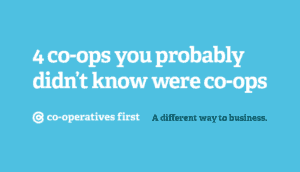Being a co-op’s board member is a big job. As a board member, you’ll represent the co-op’s members, oversee management, and you’re responsible for the organization’s overall well-being.
Even though board governance is important, directors might not be aware of what they’re signing up for. And lots of board members aren’t aware of the extent of their responsibilities. So, read on to better understand a director’s responsibilities and get some pointers to excel in that role.
What’s a fiduciary duty?
Co-op boards have a duty to act in the best interest of their co-op and make good decisions that further its mission and vision. More specifically, directors have a fiduciary duty to their co-op. A fiduciary is someone in a position of trust or management over an organization.
So, what’s included in your fiduciary duties? Here’s what they are:
- Duty to manage: The board makes sure the co-op’s work is completed. You can hire staff to do this work, but the board must ensure it gets done.
- Duty of care: Directors need to take care when making decisions. You need to be thoughtful, weigh possible risks, identify opportunities, and exercise caution to ensure you do what’s best for the co-op.
- Duty of loyalty: Once you’re at the board table, your first allegiance is to the co-op. The duty of loyalty means you don’t let your personal interests influence your decisions. Remember to declare and avoid any conflicts of interest.
- Duty of obedience: Directors ensure the co-op complies with applicable laws or regulations. This includes the requirements of a co-op (e.g., holding the AGM) but also things like remitting GST, relevant labour laws, and fulfilling OHS requirements.
So far so good, right? If you show up to board meetings, make good decisions, delegate tasks to staff, and avoid conflicts of interest, you’re all set, right? Well, it might not be that simple. There are some essential points you need to know.
What else are you responsible for?
As a director, you might be personally liable for certain decisions made or debts taken on by the co-op. This can include things like being personally responsible for things like unpaid taxes or environmental damages and — if the co-operative has staff — things like damages caused by unsafe working conditions or unpaid wages. Directors can also be named in lawsuits and, if found to have acted negligently, they may face fines.
Don’t panic — prevent
That all sounds a bit scary – but don’t panic! The worst-case scenarios rarely happen. And there are some easy solutions you can implement that protect the board:
- Maintain good records. A co-operative’s minutes are the best tool to show that directors have fulfilled their fiduciary duties. Your minutes can show that you’ve considered additional evidence, asked questions, and made decisions using your best judgment. Even if something goes wrong, your minutes can still be used to demonstrate that you’ve fulfilled your duties to the best of your abilities. As long as you fulfill your duties, there’s no personal risk to you.
- Create checklists to ensure you cover your bases. If you’re a working board for a co-op that doesn’t have staff or management to do its tasks, everything is up to you. Keeping checklists of the things that need to be done will help you ensure you’ve complied with any regulations or tasks that require action.
- Consider hiring a part-time bookkeeper. For a relatively low cost, you should be able to find someone to help you manage your books, pay the bills, and keep your records up to date.
If your co-op has management and a staff that carries out the day-to-day work of the co-op, it’s important to:
- Create a compliance checklist. At each board meeting, have management sign off on a checklist that certifies they’ve taken all necessary measures to keep the co-op compliant with applicable laws, that fees and expenses have been paid, etc. This can include a checkbox that says something like, “to the best of your knowledge have you complied with xyz laws and regulations”.
- Keep your nose in the co-op’s business, but your fingers out. It isn’t the board’s job to interfere with management and staff’s day-to-day work — but you should stick your nose in and ask questions. At board meetings, ask management about operational risks, employee well-being, and compliance with regulations. Use your best judgement to ensure good standards are being kept and remind managers that someone is paying attention.
- Request reports from the management. Asking questions is great, but a report is more helpful. At each board meeting, have management prepare a report on the co-op’s operations or departments. Ensure they flag any areas of concern to keep the board fully informed. This will help inform your decisions and help avoid surprises down the road.
To help your board understand their job and grow confidence in their role, check out our online Co-op Professionals course. And for a deeper dive into co-op governance, check out our Good Governance Matters online course. If you’re still in the start-up phase and want a little more help, check out our Board Basics Workshop for some support.

 Written by
Written by 


